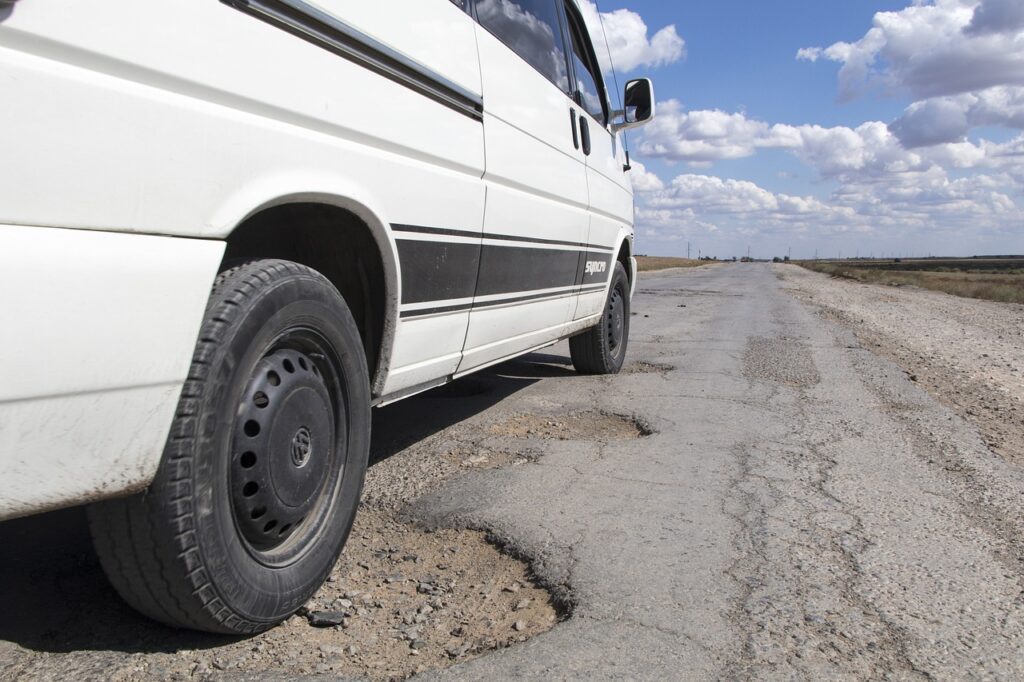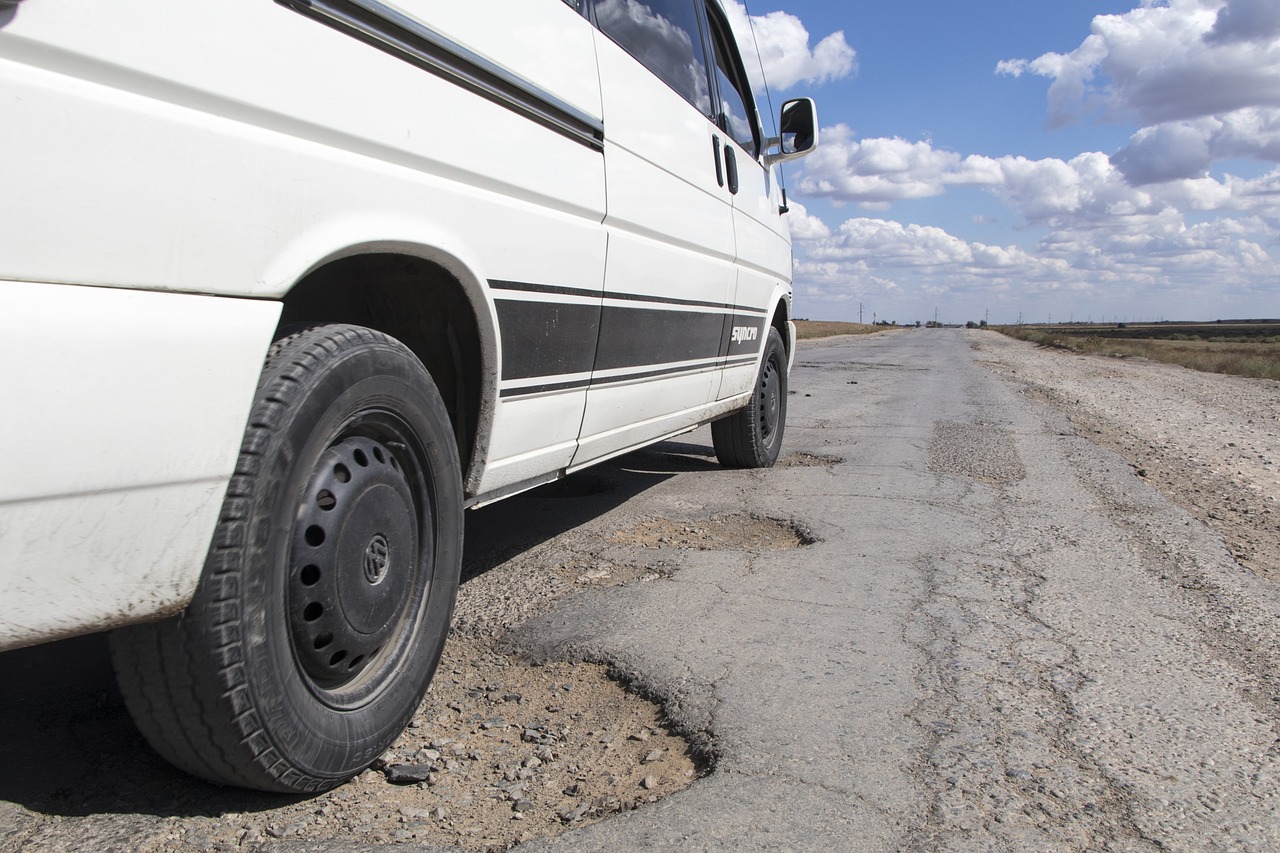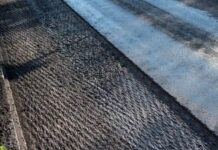Innovative Technologies in Pothole Repair
Potholes are a common nuisance on roads and driveways, causing inconvenience and safety hazards for drivers and pedestrians alike. Innovations in pothole repair technologies have revolutionized how these troublesome disruptions are addressed, offering faster, more durable solutions. Commonwealth Paving specializes in utilizing cutting-edge technologies for efficient pothole repair services. For expert advice or to schedule pothole repair, contact us at +1 502 459 7283 or visit us at 136 Outerloop, Louisville, Kentucky 40214.
The Evolution of Pothole Repair Technologies
Traditionally, repairing potholes involved manual labor, hot asphalt, and lengthy repair times. Today, advancements in technology have introduced innovative approaches that improve repair efficiency, durability, and cost-effectiveness. Here are some innovative technologies transforming pothole repair:
- Infrared Asphalt Repair
Infrared asphalt repair is a groundbreaking technique that uses infrared heaters to heat existing asphalt, enabling seamless repairs without the need for cutting or removing damaged sections.
- Process: Infrared heaters are used to heat the damaged asphalt, softening it without burning.
- Benefits:
- Seamless Integration: The softened asphalt is raked and leveled to blend seamlessly with the surrounding pavement.
- Time Efficiency: Repairs are completed quickly, minimizing traffic disruptions and downtime.
- Cost Savings: Requires less material and labor compared to traditional methods.
Infrared asphalt repair is ideal for repairing potholes, surface cracks, and other asphalt damage with minimal disturbance to the surrounding area.
- Cold Mix Asphalt
Cold mix asphalt is a versatile repair material that can be used year-round, even in cold weather conditions. Unlike hot mix asphalt, cold mix does not require heating before application, making it convenient for emergency repairs.
- Advantages:
- Immediate Use: Ready-to-use material that can be applied directly to potholes without heating.
- Durability: Forms a flexible, durable patch that adapts well to temperature fluctuations and traffic loads.
- Cost-Effective: Reduces labor costs and energy consumption associated with heating hot mix asphalt.
Cold mix asphalt is effective for temporary pothole repairs and can serve as a reliable interim solution until permanent repairs can be made.
- Advantages:
- Polymer-Modified Asphalt
Polymer-modified asphalt incorporates polymer additives into traditional asphalt mixtures, enhancing its durability, flexibility, and resistance to cracking.
- Benefits:
- Enhanced Performance: Resists deformation and cracking caused by traffic stress and weather fluctuations.
- Longevity: Extends the lifespan of repaired surfaces, reducing the frequency of maintenance and repairs.
- Environmental Benefits: Reduces material waste and energy consumption associated with frequent repairs.
Polymer-modified asphalt is well-suited for high-traffic areas prone to pothole formation, offering superior performance and durability.
- Benefits:

Choosing the Right Technology for Pothole Repair
Selecting the appropriate pothole repair technology depends on various factors, including the extent of damage, weather conditions, budget constraints, and long-term maintenance goals. Here’s how to determine the best approach:
- Damage Severity: For minor potholes and surface cracks, infrared asphalt repair or cold mix asphalt may be sufficient.
- Weather Conditions: Cold mix asphalt is suitable for emergency repairs in colder temperatures, while infrared asphalt repair and polymer-modified asphalt are ideal for warmer weather conditions.
- Budget Considerations: Evaluate the cost-effectiveness of each technology, factoring in long-term maintenance savings and durability.
Consulting with a professional paving company like Commonwealth Paving can provide expert guidance on selecting the most effective pothole repair technology for your specific needs.
Benefits of Innovative Pothole Repair Technologies
Investing in innovative pothole repair technologies offers several advantages:
- Efficiency: Rapid repairs minimize traffic disruptions and reduce repair time.
- Durability: High-quality materials and techniques result in long-lasting repairs.
- Cost-Effectiveness: Lower material and labor costs compared to traditional methods.
- Sustainability: Reduces environmental impact through efficient resource utilization and minimal waste.
Innovative technologies have transformed the landscape of pothole repair, offering faster, more durable solutions that improve roadway safety and reduce maintenance costs. Whether you choose infrared asphalt repair for seamless integration, cold mix asphalt for immediate use in cold weather, or polymer-modified asphalt for enhanced durability, these technologies provide versatile options to meet diverse pothole repair needs.
For professional pothole repair services utilizing advanced technologies, trust Commonwealth Paving. Contact us today at +1 502 459 7283 or visit us at 136 Outerloop, Louisville, Kentucky 40214, to learn more about our innovative paving solutions and how we can help maintain the integrity of your asphalt surfaces. Our commitment to excellence and customer satisfaction makes us the ideal choice for all your pothole repair needs.
A Step-by-Step Guide to Cold Patch Pothole Repair
Potholes are a common problem on roads and driveways, caused by the combination of traffic stress, weather fluctuations, and moisture infiltration. Cold patch asphalt offers a convenient and effective solution for repairing potholes quickly, especially in colder weather conditions. At Commonwealth Paving, we specialize in comprehensive pothole repair services using advanced techniques like cold patch asphalt. For inquiries or to schedule pothole repair, contact us at +1 502 459 7283 or visit us at 136 Outerloop, Louisville, Kentucky 40214.
Understanding Cold Patch Asphalt
Cold patch asphalt is a ready-to-use mixture that does not require heating before application, making it suitable for immediate pothole repairs in various weather conditions. Unlike hot mix asphalt, which needs to be heated to high temperatures, cold patch asphalt remains pliable at ambient temperatures, allowing for quick and efficient repairs.
Step-by-Step Guide to Cold Patch Pothole Repair
Repairing potholes with cold patch asphalt involves several straightforward steps to ensure a durable and long-lasting repair. Here’s a detailed guide:
Step 1: Preparation
- Safety Measures:
- Traffic Control: Ensure a safe work environment by implementing traffic control measures, such as cones or signs, to alert drivers to the repair area.
- Personal Protective Equipment (PPE): Wear appropriate PPE, including gloves and safety glasses, to protect against asphalt and debris.
- Clean the Pothole:
- Remove Debris: Use a broom, shovel, or air compressor to clean out debris, loose asphalt, and water from the pothole. Ensure the edges are clean and free of loose material to promote better adhesion of the cold patch.
- Shape the Pothole:
- Square Edges: For best results, square off the edges of the pothole using a saw or chisel. This creates a clean, uniform shape that facilitates better patch adhesion and prevents further deterioration.
Step 2: Application
- Pour Cold Patch Asphalt:
- Fill the Pothole: Pour cold patch asphalt directly into the cleaned and prepared pothole, slightly overfilling it to compensate for compaction.
- Compact the Patch: Use a tamper or hand compactor to compact the cold patch asphalt firmly into the pothole. Apply even pressure to ensure the patch bonds well with the surrounding pavement.
- Level the Patch:
- Smooth Finish: After compacting, use a rake or shovel to create a smooth finish on the surface of the patch. Ensure the patch is level with the surrounding pavement to prevent water pooling and further damage.
Step 3: Finishing Touches
- Curing Time:
- Allow Curing: Cold patch asphalt typically cures over time through compaction and exposure to traffic. Allow the repair to settle and cure according to manufacturer recommendations before reopening to traffic.
- Sealcoat Application (Optional):
- Protective Layer: Apply a sealcoat over the repaired area to enhance durability and protect against weather elements, UV rays, and traffic wear. Sealcoating extends the lifespan of the repair and improves overall pavement aesthetics.

Benefits of Cold Patch Pothole Repair
Cold patch asphalt offers several advantages for pothole repair compared to traditional hot mix asphalt:
- Immediate Use: Ready-to-use material allows for immediate pothole repairs without heating.
- Versatility: Suitable for use in colder temperatures and adverse weather conditions.
- Cost-Effective: Reduces labor and equipment costs associated with heating hot mix asphalt.
- Durability: Forms a flexible, durable patch that adapts to temperature fluctuations and traffic loads.
Cold patch asphalt provides a practical and efficient solution for repairing potholes quickly, especially in colder weather conditions where traditional hot mix asphalt may not be feasible. By following a step-by-step guide to cold patch pothole repair and utilizing professional services like Commonwealth Paving, you can ensure durable, long-lasting repairs that enhance the safety and aesthetics of your pavement.
For expert pothole repair services using cold patch asphalt and other advanced techniques, trust Commonwealth Paving. Contact us today at +1 502 459 7283 or visit us at 136 Outerloop, Louisville, Kentucky 40214, to learn more about our comprehensive paving solutions and how we can help maintain the integrity of your asphalt surfaces. Our commitment to excellence and customer satisfaction makes us the ideal choice for all your pothole repair needs.
The Cost of Pothole Repair: What You Need to Know
Potholes are not just a nuisance; they can also pose safety risks and cause vehicle damage if left unrepaired. Understanding the cost factors associated with pothole repair is crucial for budgeting and maintaining safe roadways and driveways. At Commonwealth Paving, we specialize in comprehensive pothole repair services, utilizing efficient techniques to ensure durable and long-lasting results. For inquiries or to schedule pothole repair services, contact us at +1 502 459 7283 or visit us at 136 Outerloop, Louisville, Kentucky 40214.
Factors Influencing Pothole Repair Costs
The cost of pothole repair can vary significantly based on several key factors. By considering these factors, homeowners, businesses, and municipalities can better estimate and plan for pothole repair expenses:
- Pothole Size and Depth
The size and depth of the pothole directly impact repair costs:
- Small Potholes: Minor surface-level potholes are generally less expensive to repair as they require less material and labor.
- Large Potholes: Deeper or larger potholes may require more extensive repairs, including additional material and labor for proper compaction and finishing.
- Location of the Pothole
The location of the pothole can affect repair costs due to accessibility and traffic considerations:
- Roadway vs. Driveway: Repairing potholes on busy roadways may require traffic control measures and scheduling repairs during off-peak hours, potentially increasing costs.
- Residential Driveways: Pothole repairs on residential driveways may be more straightforward and cost-effective compared to commercial or municipal roadways.
- Repair Technique and Materials
Different pothole repair techniques and materials can impact overall costs:
- Cold Patch Asphalt: Cold patch asphalt is cost-effective for temporary repairs and immediate use, suitable for emergency situations and colder weather conditions.
- Hot Mix Asphalt: Hot mix asphalt provides a durable, long-term solution but may involve higher material and labor costs due to heating requirements and specialized equipment.
- Extent of Damage and Pavement Condition
The extent of damage and overall pavement condition influence repair costs:
- Surface Preparation: Proper preparation, including cleaning and shaping the pothole, ensures a lasting repair but may require additional labor and equipment.
- Underlying Issues: Addressing underlying pavement issues, such as poor drainage or base instability, may increase repair costs but enhances long-term pavement performance.
- Labor and Equipment Costs
Labor and equipment costs are significant factors in pothole repair expenses:
- Skilled Labor: Experienced paving contractors may charge higher rates for skilled labor and efficient repair techniques.
- Specialized Equipment: Costs associated with equipment rental or use of specialized machinery for compaction and finishing affect overall repair costs.
Estimating Pothole Repair Costs
To estimate pothole repair costs accurately, consider obtaining quotes from reputable paving contractors like Commonwealth Paving. Here’s how to approach estimating costs:
- Site Inspection and Assessment
- Evaluation: A professional assessment identifies the size, depth, and condition of potholes, determining the most suitable repair techniques and materials.
- Cost Estimate: Contractors provide detailed cost estimates based on repair complexity, materials required, and labor hours.
- Comparative Quotes
- Multiple Estimates: Obtain quotes from multiple paving contractors to compare costs, services offered, and warranty options.
- Value vs. Cost: Balance cost considerations with the quality of materials and expertise offered by contractors to ensure value for investment.
Benefits of Professional Pothole Repair
Investing in professional pothole repair services offers several benefits:
- Quality Workmanship: Experienced contractors ensure proper pothole repair techniques and use high-quality materials for lasting results.
- Safety and Liability: Prompt repairs enhance roadway safety, reduce vehicle damage, and mitigate liability risks for property owners and municipalities.
- Long-Term Savings: Properly maintained pavements with fewer potholes require less frequent repairs, reducing long-term maintenance costs.
Understanding the cost factors associated with pothole repair is essential for proactive maintenance and budget planning. By considering factors such as pothole size, location, repair techniques, and materials, property owners can make informed decisions to ensure safe and durable pavements.

For professional pothole repair services tailored to your specific needs, trust Commonwealth Paving. Contact us today at +1 502 459 7283 or visit us at 136 Outerloop, Louisville, Kentucky 40214, to learn more about our comprehensive paving solutions and how we can assist in maintaining the integrity and safety of your asphalt surfaces. Our commitment to excellence and customer satisfaction makes us the ideal choice for all your pothole repair needs.
How to Choose the Right Materials for Pothole Repair
Pothole repair requires careful consideration of materials to ensure durability, longevity, and cost-effectiveness. Selecting the right materials is crucial for effective repairs that withstand traffic stress and weather conditions. Commonwealth Paving specializes in providing expert guidance and services for pothole repair using high-quality materials. For inquiries or to schedule pothole repair services, contact us at +1 502 459 7283 or visit us at 136 Outerloop, Louisville, Kentucky 40214.
Importance of Choosing the Right Materials
Choosing the appropriate materials for pothole repair significantly impacts the quality and longevity of the repair. Factors such as traffic volume, climate, and pavement condition influence material selection. Here’s a guide to help you make informed decisions:
1. Asphalt Patching Compounds
Asphalt patching compounds are versatile materials commonly used for pothole repair. They come in various forms, including cold patch asphalt and hot mix asphalt:
- Cold Patch Asphalt:
- Application: Ready-to-use material that can be applied directly to potholes without heating.
- Advantages: Ideal for emergency repairs and immediate use in colder weather conditions.
- Considerations: While convenient, cold patch asphalt may offer temporary solutions and require periodic maintenance.
- Hot Mix Asphalt:
- Preparation: Requires heating before application to achieve optimal temperature and consistency.
- Advantages: Provides a durable, long-term solution suitable for high-traffic areas and climates with temperature fluctuations.
- Considerations: Higher material and labor costs compared to cold patch asphalt due to heating requirements.
2. Polymer-Modified Asphalt
Polymer-modified asphalt incorporates polymer additives into traditional asphalt mixtures, enhancing its performance and durability:
- Benefits:
- Flexibility: Resists cracking and deformation caused by temperature changes and traffic stress.
- Longevity: Extends the lifespan of repaired surfaces, reducing maintenance and repair frequency.
- Suitability: Ideal for areas prone to frequent pothole formation and heavy traffic loads.
3. Concrete Patching Materials
Concrete patching materials are used for repairing potholes in concrete surfaces, offering durability and strength:
- Application: Requires proper surface preparation and curing time to achieve optimal adhesion and strength.
- Advantages: Provides a permanent solution for potholes in concrete pavements, enhancing structural integrity and safety.
- Considerations: Concrete patching materials may require specialized equipment and expertise for effective application.
4. Sealants and Surface Treatments
Sealants and surface treatments are applied to extend the life of pavement and prevent future pothole formation:
- Sealcoats: Protective coatings applied to asphalt surfaces to seal cracks and prevent water infiltration.
- Benefits: Enhances pavement durability, improves aesthetics, and reduces maintenance costs.
- Considerations: Regular application and maintenance are necessary to maximize effectiveness and longevity.
Steps to Choosing the Right Materials
- Assess Pothole Severity: Evaluate the size, depth, and location of potholes to determine appropriate repair materials and techniques.
- Consider Traffic Conditions: Determine the volume and type of traffic to select materials that withstand heavy loads and frequent use.
- Evaluate Climate Factors: Take into account weather conditions, including temperature fluctuations and precipitation, to choose materials that resist cracking and deterioration.
- Consult with Professionals: Seek guidance from experienced paving contractors like Commonwealth Paving for expert advice on material selection, cost considerations, and long-term maintenance strategies.
Benefits of Professional Pothole Repair
Investing in professional pothole repair services offers several advantages:
- Expertise and Experience: Experienced contractors ensure proper material selection and application techniques for durable, long-lasting repairs.
- Cost-Effectiveness: Minimizes long-term maintenance costs by using high-quality materials and proven repair methods.
- Safety and Compliance: Ensures compliance with safety standards and regulations, reducing liability risks for property owners and municipalities.
Choosing the right materials for pothole repair is essential for maintaining safe, durable pavements that withstand traffic stress and weather conditions. By considering factors such as asphalt patching compounds, polymer-modified asphalt, concrete patching materials, and sealants, property owners can make informed decisions to ensure effective pothole repairs.
For professional pothole repair services and expert guidance on material selection, trust Commonwealth Paving. Contact us today at +1 502 459 7283 or visit us at 136 Outerloop, Louisville, Kentucky 40214, to learn more about our comprehensive paving solutions and how we can help preserve the integrity of your asphalt surfaces. Our commitment to excellence and customer satisfaction makes us the ideal choice for all your pothole repair needs.
Address
Commonwealth Paving, 136 Outerloop, Louisville, Kentucky 40214
Phone: 502-459-7283, Fax: 502-456-2678
Opening Hours
| Monday | 9:00 AM – 5:00 PM |
| Tuesday | 9:00 AM – 5:00 PM |
| Wednesday | 9:00 AM – 5:00 PM |
| Thursday | 9:00 AM – 5:00 PM |
| Friday | 9:00 AM – 5:00 PM |
| Saturday | Closed |
| Sunday | Closed |







